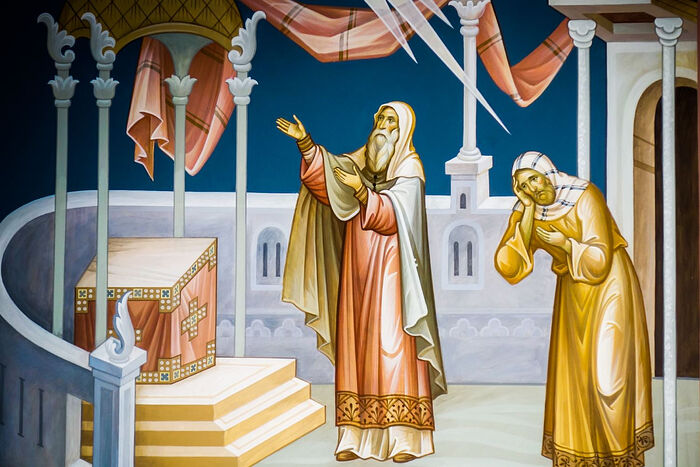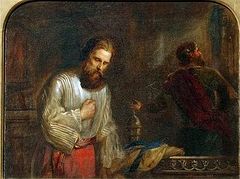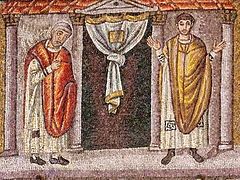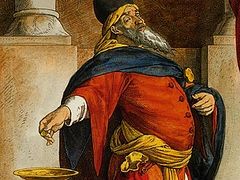Lord be merciful to me a sinner.
Luke 18:10–14
There are two men before us: the Pharisee, a strict fulfiller of the law, and the publican, the tax-collector, a sinner. The Pharisee, as can be seen from his words, did not offend anyone, respected other people’s property, was morally strict, fasted twice a week and gave a tenth of his earnings to the church.
Nothing is said of the good deeds of the publican. He is an obvious sinner before God and people. Why do we hear from the mouth of the Savior that the publican came out of the temple more justified than the Pharisee? After all, the Lord did not condemn the Pharisee’s strict observance of the law! Yes, dear ones, he did not condemn it, because good deeds, such as obedience to the voice of the Church, observance of the dictates of the Law of God and the statutes of the Church, are vital to our salvation. However, our deeds are not saving in and of themselves, but they have value in the eyes of God. They acquire a renewing and spiritually strengthening power from the content that we put into our deeds, from our inner disposition.
The Pharisee froze in the letter of the law. He froze in the formal fulfillment of the Lord’s commands. In him we have a model of a heartless doer of good, a model of soulless work, and it is no wonder he crowned the dryness of his heart with arrogance. He dares to present his faithfulness to the law as something special. He decided that by the works of the law he had acquired, as opposed to others, the right to be heard in prayer. The Pharisee is a true mirror of the good deeds surrounding us in the West.
The Publican came out of the temple more justified than the Pharisee. For us to understand this more fully, the Lord draws our attention to the state of the hearts of these two sons of the Old Testament Church. Without condemning the Pharisaic fulfillment of the law, the Lord points out to us the main thing in our spiritual labor. Those who thought they could become like God stood before God proudly. The pride of Lenin’s burning furnaces1 plunged Russia into the abyss of sins, both on an individual, as well as societal and national level. The example of the proud man is given to us in the present evangelical Pharisee. With pride and vanity, we destroy our good deeds. Goodness, pure and fruitful goodness, is built up in humility and simplicity of heart. Without humility, a person can't grow morally or spiritually.
The experience of the spiritual life of our brothers in Christ, who achieved knowledge of the purpose and meaning of life, provides examples of the attitude with which we must enter the opening gates of the Holy Lenten days. “Tell me, elder, how should one repent?” the disciples asked the dying elder Agathon, who attained holiness and performed wondrous miracles in the name of Christ. The elder replied, “I myself have not yet begun to repent.” And another righteous man was asked: “Tell me, who are the righteous and who are the sinners?” This elder replied, “I am the chief sinner, but the Lord knows the righteous.” “Know thyself,”, said the Optina elder Ambrose. And in today’s gospel reading, the Lord instructs us to pay more attention to our personal shortcomings. May our Guardian Angel and the saint whose name was given to us at baptism, whom we call upon in our daily prayers, help us in this. Amen.




